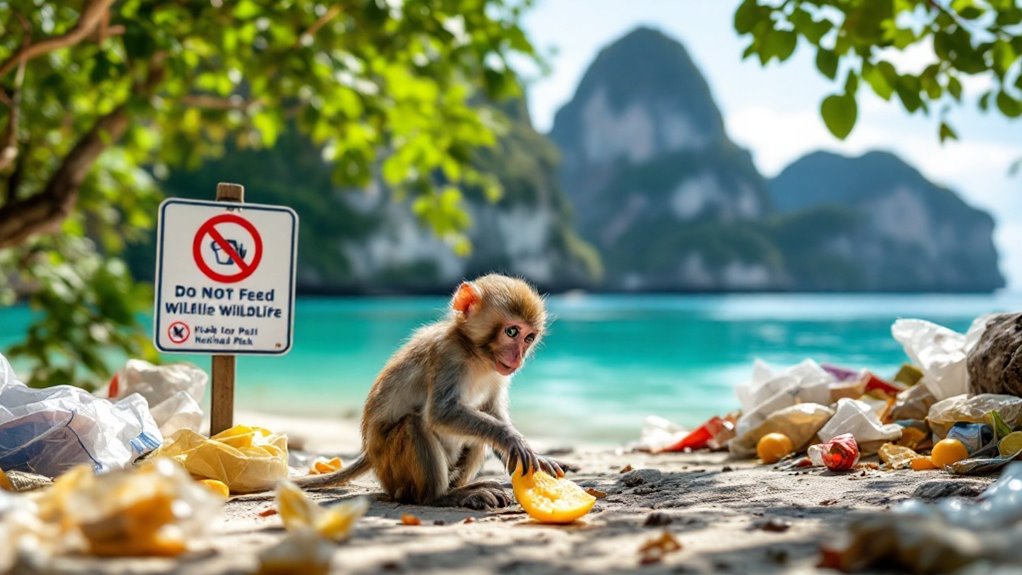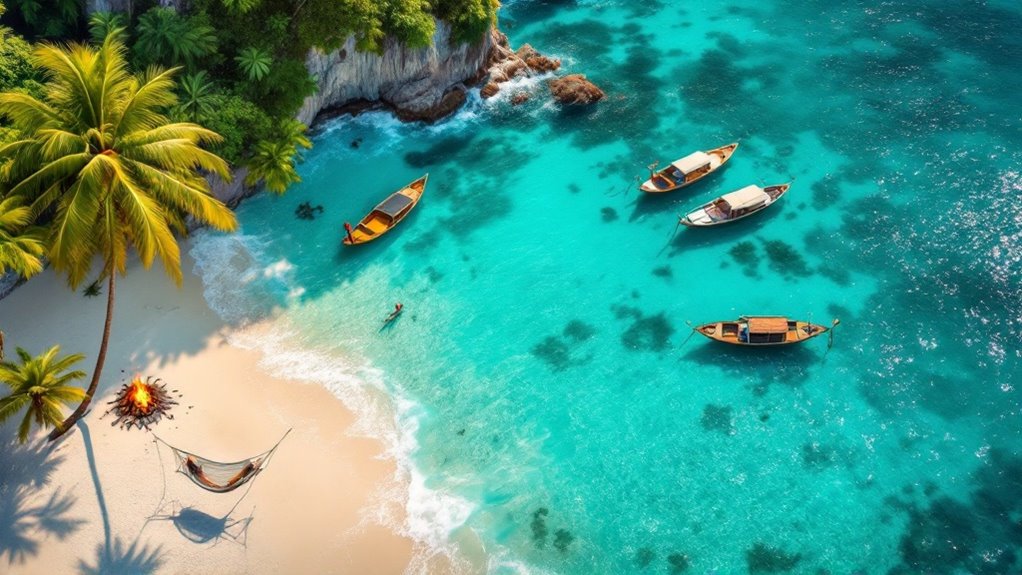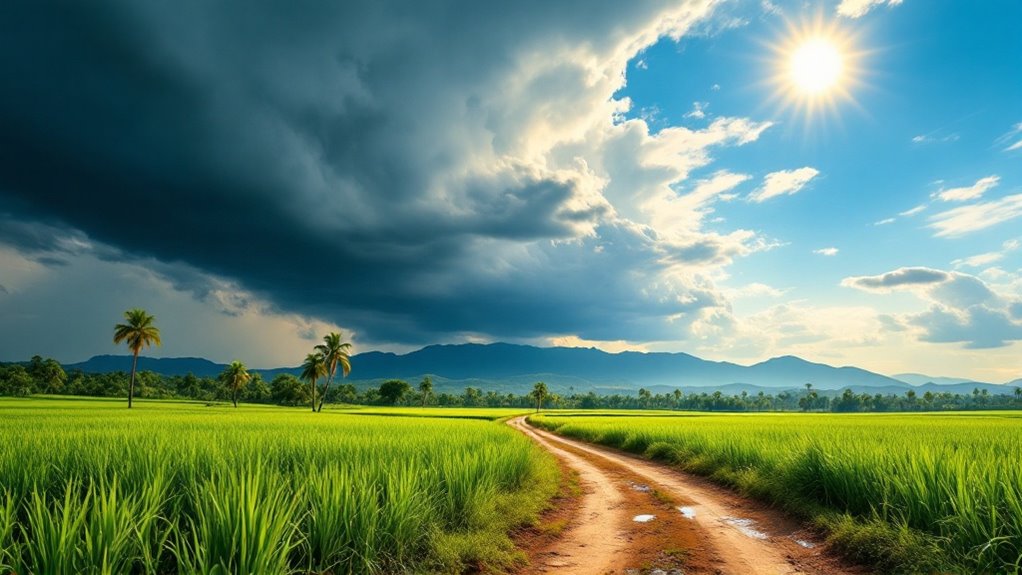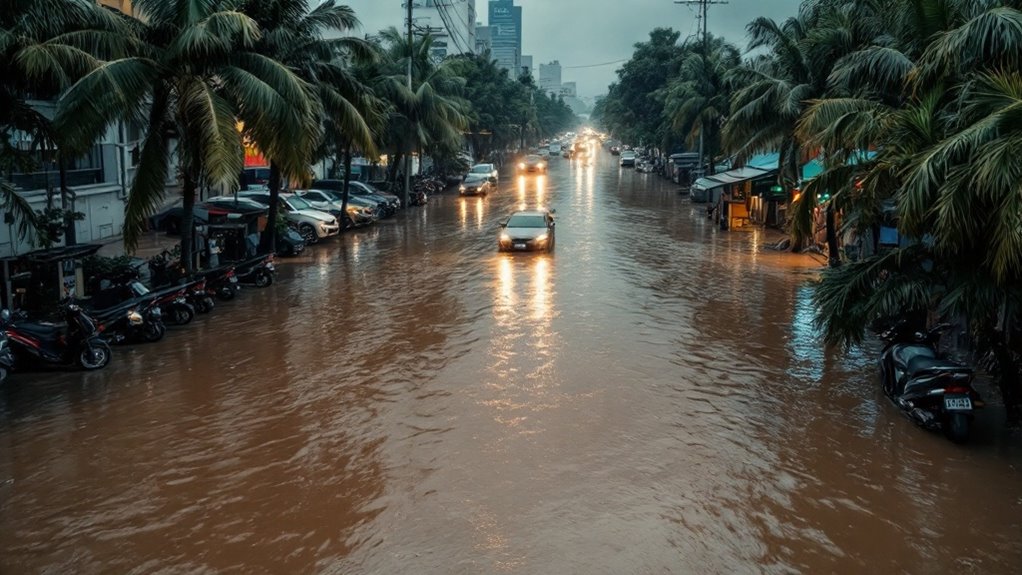A recent incident where tourists fed monkeys at Krabi National Park, despite posted bans at sites like Monkey Bay, has led authorities to enforce stricter regulations. Violators can now face fines up to 1,000 Thai Baht, as park rangers use social media to identify and penalize offenders. Artificial feeding has caused aggressive monkey behavior, increased disease risks, and damaged the park’s reputation. Those interested can discover how these measures aim to restore balance and safety within the park.
Although feeding monkeys has become a common activity among visitors to Krabi National Park, authorities have explicitly banned this practice due to its significant ecological, health, and management consequences. The feeding prohibition is clearly posted at locations such as Monkey Bay, with multilingual signage intended to deter both tourists and local guides from violating park rules.
Nonetheless, enforcement remains challenging, as some tourists and even guides disregard these warnings for the sake of photo opportunities or entertainment. Park rangers, tasked with upholding these regulations, have begun using viral videos and live-streamed social media footage to identify offenders, who may face fines of up to 1,000 Thai Baht.
The ecological impact of artificial feeding has become increasingly evident. Monkeys, particularly macaques, have shifted from natural foraging behaviors to relying on human handouts. This dependency results in increased aggression, with reports of food theft, biting, and even raiding of garbage bins and nearby businesses. Feeding wildlife poses risks for disease transmission between animals and humans, making both tourists and local communities more vulnerable to outbreaks. In addition, monkey attacks on tourists have increased in several popular destinations due to the animals’ altered behavior and growing boldness.
The unnatural abundance of food disrupts natural breeding cycles, leading to population pressures that exacerbate human-wildlife conflict throughout the region. During periods of drought, when natural food sources in mangroves and forests diminish, monkeys expand their search for sustenance, entering homes and factories, and increasing the risk of rabies transmission and other zoonotic diseases.
Tourism itself is deeply affected by these conflicts. Safety concerns have risen after repeated attacks at Monkey Bay and Wat Tham Sua temple areas, with opportunistic monkeys snatching visitors’ belongings and food. Viral incidents captured on video have damaged the park’s ecotourism reputation, while property damage and medical costs impose an economic burden on both visitors and local communities.
In response, park management has intensified awareness campaigns and waste management protocols, secured trash bins, and partnered with guides for real-time monitoring and policy reinforcement.
Local residents, meanwhile, report ongoing property damage, destroyed crops, and growing frustration. Informal community patrols have emerged as a stopgap measure, but broader solutions remain necessary. Authorities continue to emphasize responsible tourism and stricter enforcement, aiming to balance ecological integrity, public health, and sustainable visitor experiences in Krabi National Park.









